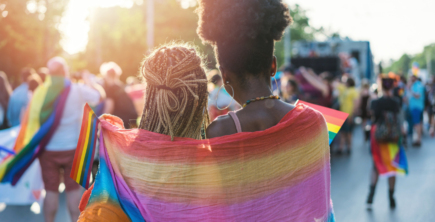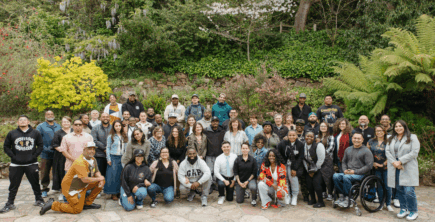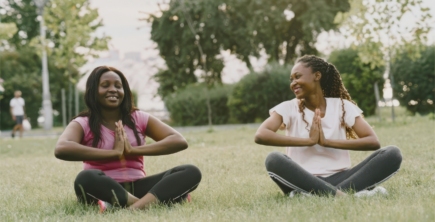
LGBT

In June 2024, physicians, birthworkers, and organizers joined representatives from Tides Foundation’s Healthy Democracy Fund and Just Health Fund to discuss the steps marginalized communities have been taking to protect themselves in the two years since Roe was overturned. Hear their stories and read key messages from the conversation below.
Beth Huang
Program Officer of Civic Engagement & Democracy, Tides
I just remember thinking about that first Monday in May when the Dobbs decision leaked. And I just remember marching around the statehouse on that Monday in May, feeling so hopeless. When I saw that 70 percent of the voters who registered to vote in Kansas a week after Dobbs, because they had the ability to repeal an abortion ban that August 2022, when 70 percent of the new registrants were women, I felt hope.
I felt hope last November when voters in Ohio resoundingly, decided to enshrine abortion in their constitution. And I feel hope every time we make a grant out of the Tides Foundation, out of the Healthy Democracy Fund to support ballot measures that will enshrine abortion access.
. . . . . . .
Nakia Woods
Community Birthworker
I think it’s becomes really disheartening when we talk about the Black maternal health crisis as something that is Black people’s fault.
We know that it’s difficult for us to trust medical providers because we have been experimented on. I’m in the hospital space. I see how we’re treated. I see the way that doctors assume that Black birthing people are just don’t know. Let’s push you towards that C-section because that’s what Black birthing people do.
And so again, it’s investing also in the people that are already doing the work. We don’t need to reinvent the wheel. You live in a city. I’m sure there’s a doula collective. I’m sure that there’s a group of midwives that are doing this work. I’m sure that there’s reproductive justice advocates that are working hard and just need a little bit more.
Do the research, invest in who’s already here, and like, show up.
. . . . . . .
Dr. DeShawn Taylor
Founder and CEO, Health Justice MD and the Desert Star Institute for Family Planning Inc
I’m a physician, so I grew up under a reproductive health framework. And then when I did my first abortion, then I moved into the reproductive rights framework, and then as I personally started to decolonize my practice of medicine, that process of decolonization moved me towards the reproductive justice framework.
It’s centering the most marginalized people, people of color. People struggling to make ends meet, Black people, indigenous people, immigrants, disabled people, queer, lesbian, non binary, trans, people in rural areas, but also giving them the tools that they need to be their own advocates and truly participate in their care, understanding that they are the moral authorities over their lives and that they are going to do what they know is best for themselves and their families when given the appropriate information to make a decision and then the optimal conditions to execute.
. . . . . . .
Tareya Palmer
Program Officer of the Just Health Fund, Tides Foundation
There are 57 percent of Black women in the United States who either have no access to abortion or limited access. I am from Ohio. I am from a state where we have passed the ballot initiative, which codifies abortion into the constitution, but because we know what the other side is doing, they will try anything that they can to make sure that they make it hard to do what you need to do to make a choice for yourself to have an abortion.
That means a 24 hour waiting period. That means you have to do two visits in order for you to have the procedure. In a state like Ohio, we have folks coming from Florida. We have folks coming from Georgia. We have folks coming from West Virginia. So we have all the folks who need services in Ohio.
And then we have other folks. So there is an influx and this is not unique to just Ohio. This is anywhere that’s considered a haven state.
. . . . . . .
Blanca Macias-Villa
Deputy Director, Make the Road Nevada
Our women in the space created a space for themselves called El Comité de Mujer and they did that on their own — they organized it. They were like, we just want the space and they started mobilizing themselves.
One of the critical focal points is our reproductive freedom. With the ballot initiative, we’ve mobilized members. Over 200 of our members have been mobilized to go to the events who helped collect ballot signatures and we’ve been able — with the campaign — to deliver over 200,000 signatures a couple weeks ago.
. . . . . . .
Learn more about Tides’ Healthy Democracy Fund and Just Health Fund:

LGBT

Corporate Partners

Philanthropy

Read the stories and hear the voices of social change leaders fighting for justice.